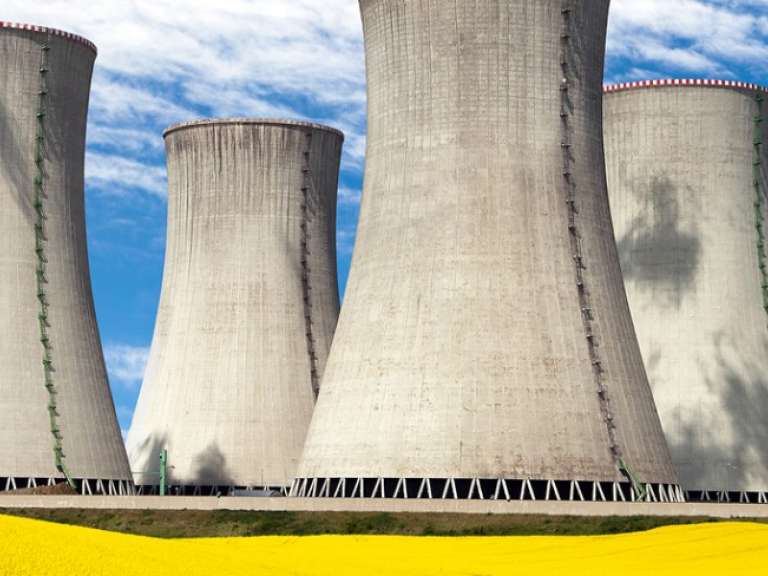The Next Generation of Plant Leaders: How Will We Train Them?
Peter Kelly-DetwilerGrooming the next generation of plant leaders means imparting not only operational expertise, but also business savvy to keep up with the changing industry.

Training the next generation of plant leaders represents a unique challenge. The younger power plant leaders are book smart, having graduated at or near the top of their class. However, there's a big difference between being book smart and being plant smart. Plant leaders need practical knowledge to be fully ready to make critical decisions at a moment's notice. These decisions may affect people's safety, the health of a multi-billion-dollar company, or the contractual obligations of the power plant. In order to manage a complex, expensive plant and hundreds of employees safely, effectively, and profitably, a plant leader must consider a multitude of factors every hour of every day. These challenges only get bigger in an environment where technologies, power prices, and policies are continuously changing.
So how do we groom the next generation of plant leaders to be able to effectively unite a team of employees, make the right decisions, and drive safe and profitable results?
Expertise is critical, but there is simply no substitute for leadership skills. It is important to identify and hire candidates who are good at motivating and guiding people. While the plant manager must be familiar with all aspects of the power plant, the job is really about managing people. Plant managers must develop trusting relationships with the dozens of senior employees with whom they have daily contact. Leaders must ensure that plant employees understand what to do and why they are doing it, both on routine days and during a crisis. This is one reason that so many successful plant managers come from the US Navy nuclear submarine program. They are trained in just such an environment.
Assuming the leadership talent is there, the next step is to develop the appropriate training regimen to groom the individual into the best plant manager possible. Many candidates for the position have spent years as technicians and understand how a plant operates. However, they may not be familiar with the particulars of the specific plant they are tasked with managing.
First, ensure that all of the critical issues are addressed. Some training organizations utilize a skills matrix to reinforce the basic technical procedures of plant operation. This approach sometimes includes training offered by turbine manufacturers either on site or through simulations. The key here is to focus on correct operational procedures and ensure that the manager is capable of transferring that knowledge to the relevant staff.
Then there are the contextual elements that inform decision-making. Decisions that must be made quickly often involve consequences related to safety, plant health, and economics. For example, a plant manager might have to determine whether to trip a unit or call for a shutdown. Or the manager might be called upon to run the plant harder when hourly spot prices are exceptionally high, even if this means the routine maintenance schedules must be altered.
Such decisions are best made when power plant managers have a thorough understanding of the business side of the equation. Therefore, it's imperative that new managers understand the contractual relationships under which their plants operate. That way, they also understand the financial impacts of their actions. One training outfit recommends that all plant employees be able to produce a one-page summary of each contract as it relates to running the plant, and explain the implications of their actions within that context.
While training should include an understanding of the plant-specific operating environment, it should also encompass nontechnical topics. For example, if a plant manager is responsible for managing a business plan and budget, then the skill sets necessary to perform those tasks must be developed. As power plants become increasingly digitized, more useful and actionable information becomes available. Therefore, there is a growing need for new plant managers to be cognizant of what is happening across the rest of the organization, how his or her plant relates to the rest of the fleet, and what's happening on the trading floor.
Good training programs are not set-and-forget exercises. Of course, imparting the foundations of safe and efficient plant operation to new managers is essential. However, there are complex aspects of the job to master beyond those initial tiers of training. Effective education programs never stop, as there is always more experience to learn from. This is especially true in a world where big data is becoming more pervasive, renewable energy is increasing its role in the grid, and power plants are being asked to perform new actions, such as more frequent start–stop procedures. Therefore, a continuous program of grooming leadership qualities and business savvy will serve new hires and the plant best.
A greater emphasis on training tomorrow's leaders will pay dividends, both in more safe and effective daily operations and the overall profitability of the plant.
Find out how private equity companies lower power plant O&M costs by running plants leaner and more profitably than incumbents.
Plant managers must take several factors into account in order to achieve optimal economic outcomes for energy trading and risk management.
Learn how to approach stakeholder relationship management and adopt customer-centric tools and strategies to stay competitive this year.